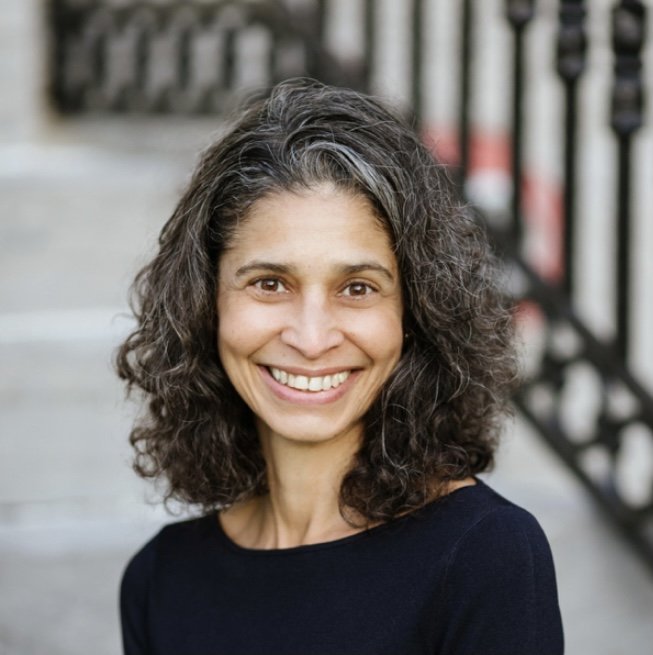Marinheiro Só by Elisa Macedo Dekaney & Eduardo Lakschevitz
Marinheiro Só is a traditional Brazilian song from the capoeira tradition. This arrangement is scored for three-part mixed with optional baritone, piano, and pandeiro.
“The calm introduction is followed by the capoeira song with its characteristic patterns, including a well notated percussion part for the pandeiro. While intended for three-part mixed middle school choir, the arrangement is also suitable for groups of all ages.”
– Dr. Juan Tony Guzmán
“Eduardo Lakschevitz is a renown composer and educator. His works express the essence of Brazilian music. He and Elisa Dekaney provide us with a delightful and well-crafted arrangement of “Marinheiro Só,” a traditional cantiga de capoeira. This version of “Marinheiro Só” celebrates the Afro-Brazilian cultural heritage, and it’s a fine contribution to the choral repertoire.”
Product Details
Recording
Transcription
Portuguese
O marinheiro, marinheiro
Marinheiro só
Quem te ensinou a nadar?
Foi o tombo do navio
ou foi o balanço do mar?
Eu não sou daqui,
eu não tenho amor
Eu sou da Bahia de São Salvador.
English
Oh, sailor, sailor (Only you, sailor)
Who taught you how to swim? (Only you, sailor)
Did you learn it when the boat capsized? (Only you, sailor)
Or did you learn it through the rough movement of the waves? (Only you, sailor)
I am not from here (Only you, sailor)
I have no one to love (Only you, sailor)
I am from Bahia of São Salvador (Only you, sailor)
Composition
Marinheiro Só is a traditional Brazilian song from the capoeira tradition. Capoeira is an Afro-Brazilian art form, “a synthesis of dances, fights, and musical instruments from different cultures, from different African regions. It is a synthesis created in Brazilian soil, probably in Salvador, the capital of the state of Bahia, under the regime of slavery primarily during the nineteenth century” (p. 4)1.
This arrangement is scored for three-part mixed with optional baritone, piano, and pandeiro. The pandeiro is a Brazilian frame drum with jingles and played with the hands. It is like several frame drums from the Middle East as well as the orchestral tambourine. It is used in various music styles including capoeira along with drums and berimbau.
It is possible to see this text as a metaphor for the struggles Africans and their descendants faced in Brazil because the song centers on the sense of belonging: “I am not from here; I have no love.” Furthermore, the question, “who taught you how to swim? Did you learn it when the boat capsized, or did you learn it through the rough movement of the waves teach you” could be constructed as “how did you learn to survive? During your journey from Africa? Through the rough times in your life?” The answer is not provided in the song and its absence leads us to examine the resilience we develop through struggles in life. In fact, capoeira, as an art form, is the result of the Afro-Brazilians’ creativity in building their own physical and emotional strength, resilience, and as way to resist.
1 Capoeira, N. (2003). The little capoeira book. Berkeley, CA: Blue Snake Books
Composers
Elisa Macedo Dekaney is professor of music education and the Laura J. and L. Douglas Meredith Professor for Teaching Excellence at Syracuse University. She serves as the associate dean of research, graduate studies, and internationalization in the College of Visual Performing Arts (VPA). Dually appointed by the School of Education (teaching & leadership) and VPA (Setnor School of Music), she teaches graduate and undergraduate courses in the areas of choral music, music education, music research, and world music and cultures.
Born in Rio de Janeiro, Brazil, Dekaney earned a bachelor’s degree in sacred music (piano) at the Seminário Teológico Batista do Sul do Brasil and a bachelor’s degree in communications from the Universidade Federal Fluminense. She continued her studies in the United States, earning a master’s degree in choral conducting from the University of Missouri-Kansas City under Eph Ehly and a Ph.D. in choral music education from the Florida State University under André Thomas, Judy Bowers, Clifford Madsen, and Rodney Eichenberger.
An active researcher, Dekaney’s scholarly research focuses on aesthetic response to music, world music and cultures, International Phonetic Alphabet, Indigenous and Afro-Brazilian culture, and clinical simulation applied to music education.
Dekaney and husband Joshua Dekaney are the founders and directors of Samba Laranja: the Syracuse University Brazilian Ensemble.
Professor of Music at the Universidade Federal do Estado do Rio de Janeiro (UNIRIO), Eduardo Lakschevitz is active as a teacher, conductor, and clinician. After 35 years directing school, church, and community choirs, he is now dedicated to composing and arranging music for groups in all ages and formations. His compositions and and arrangements have been recorded and performed in Brasil, Venezuela, United States, Mexico, Slovenia and Germany.
Dr. Lakschevitz founded the NGO Oficina Coral, where he develops corporate education programs through choral singing. He holds a Doctoral degree in Music at UNIRIO, and a Master’s degree in Choral Conducting from the University of Missouri-Kansas City (UMKC), where he studied with Eph Ehly.
Publisher
La Voz Music Publishing



















